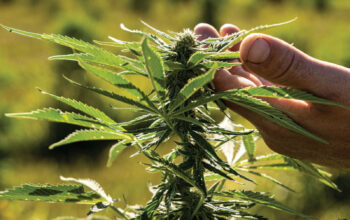The Addiction Phases You Should Understand
Not each person who uses drugs or alcohol becomes addicted, but, loads of heaps of people around the world do. Addiction is a modern disease. It can change the chemical composition of your thoughts. Experts on substance abuse and thoughts agree that dependency moves through three ranges: escalation, binge, dependence, or what’s stated as the stages of dependency.
Phase 1: Binge or Intoxication
People who have a problem with substance abuse, alcohol, or drugs are frequently inspired by the manner of approach of the reward system in their thoughts. When they interact through abusing substances, someone’s thoughts release dopamine. This is a chemical that would make you feel remarkable and inspire a man or woman to keep abused substances to feel better. People who are exposed to this chemical will likely increase their tolerance for its utilization of it, which can cause them to look for treatments for dependency and want to discover help quickly, including through a rehab middle in India.
The binge/intoxication diploma of the dependency cycle is the diploma in which someone consumes the substance of choice. This diploma intently involves the basal ganglia and its key thoughts sub-regions, the nucleus cucumbers, and the dorsal striatum. In this diploma, substances have an effect on thoughts in several ways.
Abuse of alcohol or drugs adjusts the thoughts. The extra the abuse, the greater the possibility of becoming independent. During the early ranges of drug or alcohol dependency, in all likelihood, a boom triggers binge intake or drug use. One’s thoughts may, moreover, start firing off dopamine in anticipation of medicine or alcohol. Dopamine motives gratifying feelings and this will make for powerful cravings for drugs or alcohol.
Certain situations make some people extra prone to this diploma of dependency. The De Addiction Centre in Jammu locates that people with highbrow health issues are also at more risk of substance abuse. If you have conditions like despair or anxiety, you can like how drugs or alcohol ease your symptoms and symptoms. The problem is substance abuse best provides on-the-spot comfort and does now no longer resolve the underlying motive of psychiatric symptoms and symptoms.
Phase 2: Withdrawal / Negative effects
The laughter stops at the same time as one is now no longer having a superb time. With substance abuse, there can be no extra pride in its use. Now, one is surely using drugs and or alcohol to avoid withdrawal symptoms. Establishing chemical dependency has been achieved. The thought-fearful system is appreciably inflamed and rejected in the absence of risky substances like drugs and or excessive alcohol intake. Substances are to artificially activate sensations of health through artificial neurotransmitter effects akin to huge dopamine releases that compete with endogenous thought neurochemistry.
In the second diploma of dependency, physical dependence and intellectual dependency are what stress people forward. Depending on what substance one is addicted to, withdrawal symptoms and symptoms are to be had in several stages, from ache to severe. Withdrawal pushes clients into the 1/three form of dependency that could be a compulsion as it takes over the man or woman’s lifestyles.
Phase 3: Compulsion / anticipation / pre-occupation
“Rock bottom”, or the lowest element of losing the whole thing that depends on your lifestyle, get up inside the 1/three diploma of dependency. Your thoughts through the manner of approach of this element have ended up rewired to anticipate dreams, drugs, or alcohol to survive. It instructs you to get extra no matter what it takes to achieve that goal. Brain regions laid low by this retirement include those involved with motivation, decision-making, restraint, learning, and planning.
This diploma of the dependency cycle is characterized by a manner of approach of disruption of presidency traits due to the compromised prefrontal cortex. The interest in the neurotransmitter glutamate is increased, which drives substance use conduct associated with craving, and disrupts how dopamine affects the frontal cortex. The over-activation of the Go system inside the prefrontal cortex promotes habit-like substances looking for, and the under-activation of the Stop system inside the prefrontal cortex promotes impulsive and compulsive substances looking for.
The three ranges are associated with and feed on each differently, but similarly, they incorporate one-of-a-type thought regions, circuits (or networks), and neurotransmitters and result in particular varieties of modifications inside the thoughts. An individual may fit through this three-diploma cycle over the route of weeks or months or improve through it several times a day. There may be variations in the ways people expand through the cycle and the intensity with which they experience each of the ranges.
It’s in no sense too speedy or too overdue for drug rehabilitation software at a Nasha Mukti Kendra in Jammu. Any diploma of dependency is an incredible one for treatment. An individual’s thoughts are prone to modifications at each diploma of chemical dependency and sobriety can help repair the physical, intellectual, and behavioral damage inside the early or overdue ranges of dependency.
Quitting drugs can change the thought balance of neurotransmitters. It takes time for the thoughts to head again to its natural production of feel-nicely neurotransmitters without the help of a substance like alcohol or difficult drugs like opioids. Sometimes you will likely need help from medicinal tablets and healthy lifestyle conduct, like seeing a therapist who has an area of expertise in cognitive behavioral therapy: the services furnished through the manner of approach of top steeply-priced rehab in India offer some of the first-class desire for recovery.
Effective dependency treatment inside The rehabilitation facilities in India address all of the elements of an addict’s lifestyle through a manner approach of supplying applications that assist you to have a look at why you abuse drugs or alcohol; psychiatric care at the same time as needed to help control dual evaluation issues whether or not or now no longer it’s far substance abuse and highbrow health issues or behavioral modifications in response to research or interactions with people or environments




